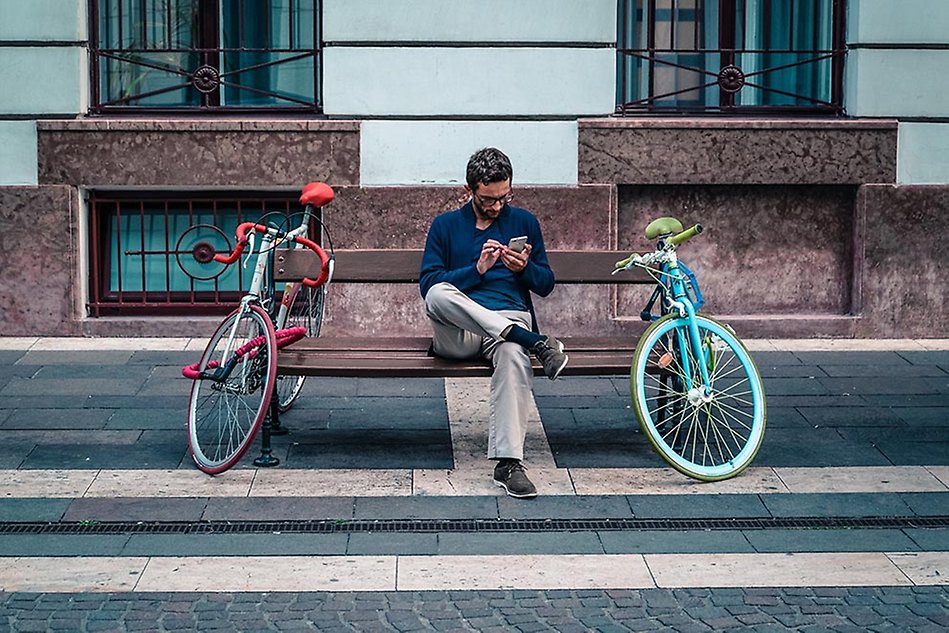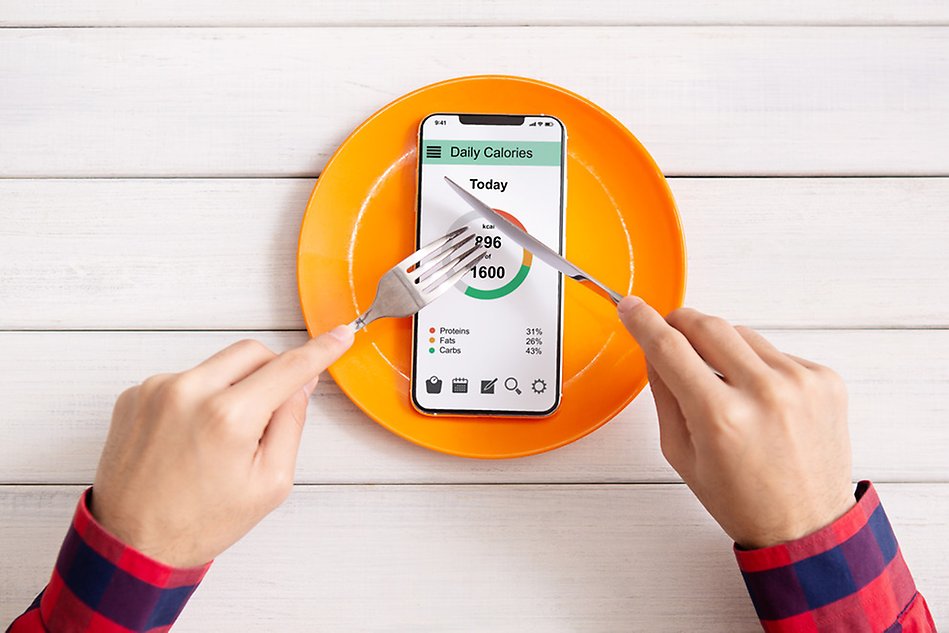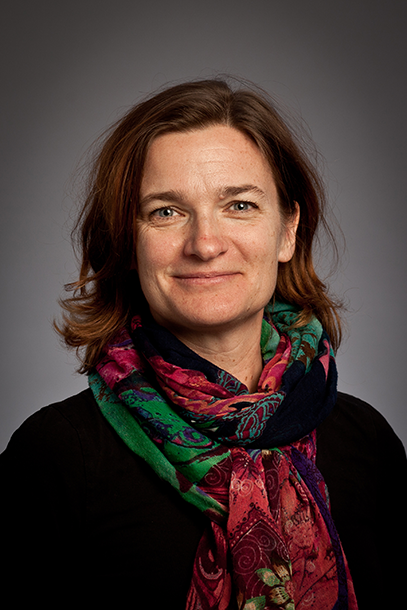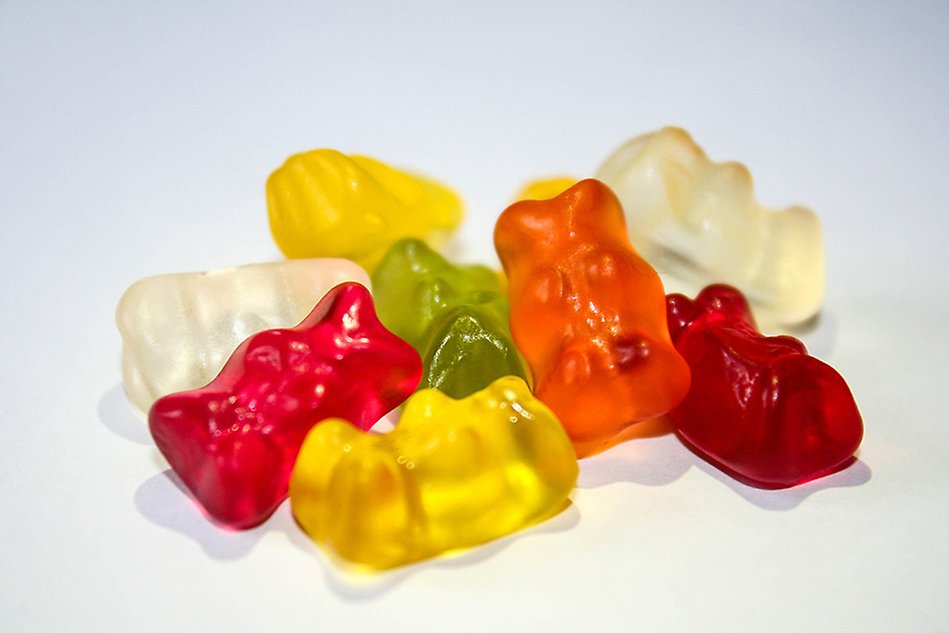Self tracking apps affect us – and we affect the apps with improvisation and fiddling
They are a big part of our everyday lives, the apps that measure everything from how we eat and sleep, to how we move. The initial idea is that our behaviour needs to be adjusted – we are supposed to become better people with the help of, for example, a pedometer. But it is not always that simple. Researchers within the fields of pedagogy, anthropology, ethnology and sociology at, among others, Halmstad University have studied how the self tracking apps and the technology affect us – and how we affect the technology.

“To collect data about oneself is not a ‘neutral’ action. We do not just learn from data, we also learn with it.”
Vaikte Fors, Associate Professor
“We are interested in what people do with their apps. Ten years ago, we reviewed what kind of new technologies were starting to infiltrate people’s everyday lives. One of these were self tracking apps”, says Vaike Fors, Associate Professor of Pedagogy at the School of Information Technology, Halmstad University.
The book Imagining Personal Data: Experiences of Self Tracking
Vaike Fors has written the book Imagining Personal Data – Experiences of Self Tracking together with Martin Berg, Associate Professor of Sociology at Malmö University, Tom O’Dell, Professor of Ethnology at Lund University, Sarah Pink, Professor of Design and emerging Technologies ant Monash University in Australia and also Guest Professor at Halmstad University. The book is published by Routledge.
They have during four years studied how self-tracking technologies become a part of our everyday lives and our visions of the future, both for the individual and for society. The researchers have also studied similarities and differences in purposes and visions of the future between both everyday users and self tracking app designers and developers.

In one of their research reports, the researchers write: Our research showed that the idea behind using self tracking technologies which assume that these, in an easy way, lead to behavioural changes because of more self knowledge, improved health and a ‘better life’ needs to be re-evaluated.
Humans are rational in several ways
Self tracking apps are developed and sold with the basic assumption that humans are not good enough as they are: We do not move enough, we eat wrong and sleep badly, and these things need to be fixed.
“If we had been happy with ourselves, not a lot of measuring tools or apps would have been sold. The main point of our research is that the apps are designed based on us being rational beings, that is, if we are given easily accessible data about the situation, we will change our behaviour accordingly. But us humans also have a cultural rationality; we are cultural beings who do what is rational in relation to social contexts.”
Research projects about self-tracking technologies
The research project about self tracking apps is financed by Riksbankens Jubileumsfond.
Within the project, the researchers themselves have used different apps during an ’autoethnographic experiment’ and a cultural-historical study of mirrors has been done.
“This historical perspective brought to light how analogue technologies were used during the 17th and 18th centuries to make the body possible to measure and monitor, and how older body tracking technologies and practices have come to make way for current digital self-tracking technologies”.
The researchers have also interviewed and observed how people use self-tracking technologies, as well as interviewed designers and conducted ethnographic content analysis of marketing and instruction material such as sales pitches, blog posts, and public presentations. They have also conducted participatory observations at bio-hacking and Quantified Self events. A future-oriented design workshop has also been organised within the project.

Somewhat unexpectedly, the word health is barely mentioned in the book, in this case the researches have not been interested in how in the best way an app can make people healthier. Despite this, the book is also important for the health-oriented research, according to Vaike Fors: “There needs to be more understanding of how people improvise, fiddle with, and use apps in a way that suits them in their everyday lives”.
“To collect data about oneself is not a ’neutral’ action. We do something with the data, and we do not just learn from it, we also learn with it. It is a part of something we experienced in a place – and that made us feel something particular.”
Running to experience
Alternative ways to use the apps – that the developers did not anticipate – can be the reason we keep using them. An example is the woman who runs marathons and uses a running app as a photo album.
“She can scroll through the data from the run, see where she was running and at the same time remember and “feel” the run. She does not look at specific steps but looks at the map the app creates and compares her experience to it. ’That was a nice spot’, ’that is where I fell …’. If the map does not line up with what she remembers, her own experience is more important. She uses the app to enhance the running experience”, Vaike Fors explains.
Today’s body measuring technology comes with the message that a successful self-tracker uses the same app regularly and for a long time. That is how big data is best collected for a company to further develop the app, the technology and the company’s business model.
“Our study shows that in some cases one can learn all one needs to by using an app for four days”, says Vaike Fors and concludes that the fact that data means so much more than numbers is something that has gone unnoticed in many studies.

A man who participated in the study used an app to keep track of his beer consumption and concluded that he registers fewer beers than he actually drinks. But when there is “too much lying” it is humiliating for himself, and he stops using the app for a while. Another interviewee shared a similar strategy for their candy consumption.
Self-tracking for the sake of the individual
Vaike Fors mentions Sara Riggare, doctoral student and Karolinska Institutet, who monitors and measures her own Parkinson’s Disease to be able to, to the greatest possible extent, handle her treatment and medicine based on her own conclusions about her health. Sara Riggare says in an interview with the researchers in the project, that the problem with the apps is that they are often developed to solve problems we have not formulated ourselves. On the contrary, an app that is used with a purpose formulated by the individual is more helpful in solving actual problems – for data to become valuable, we need to know that it is being collected and is able to be put into context.
“If you do not know that you are collecting data, what is the purpose?”. Sara Riggare refers to herself as an e-patient. She knows a lot about her disease and can by the help of self-tracking medicate and treat her own Parkinson’s.
“Ten years ago, we did an external monitoring of what kinds of new technologies were starting to infiltrate people’s everyday lives. One of these were digital self tracking technologies.”
In other words: To understand data in an Excel file is one thing, while data that is being understood in the embodied, and not at all perfect, world is another – and something more.
“A consequence of the study is that we show that apps in the future can be designed in such a way that users find new ways of learning about themselves and their bodies, in relation to the world we live in. Instead of tools for behavioural changes, the technologies could rather be seen as tools for learning”, says Vaike Fors.
Text: Kristina Rörström
Translation: Linnéa Andersson
Photo: Magnus Karlsson, Pixabay and iStock
Read more
Imagining Personal Data: Experiences of Self-Tracking External link, opens in new window.
Research environment Embedded and Intelligent Systems (EIS)
In Swedish: Kroppsapparna påverkar oss – och vi påverkar apparna med improvisation och pill External link.

